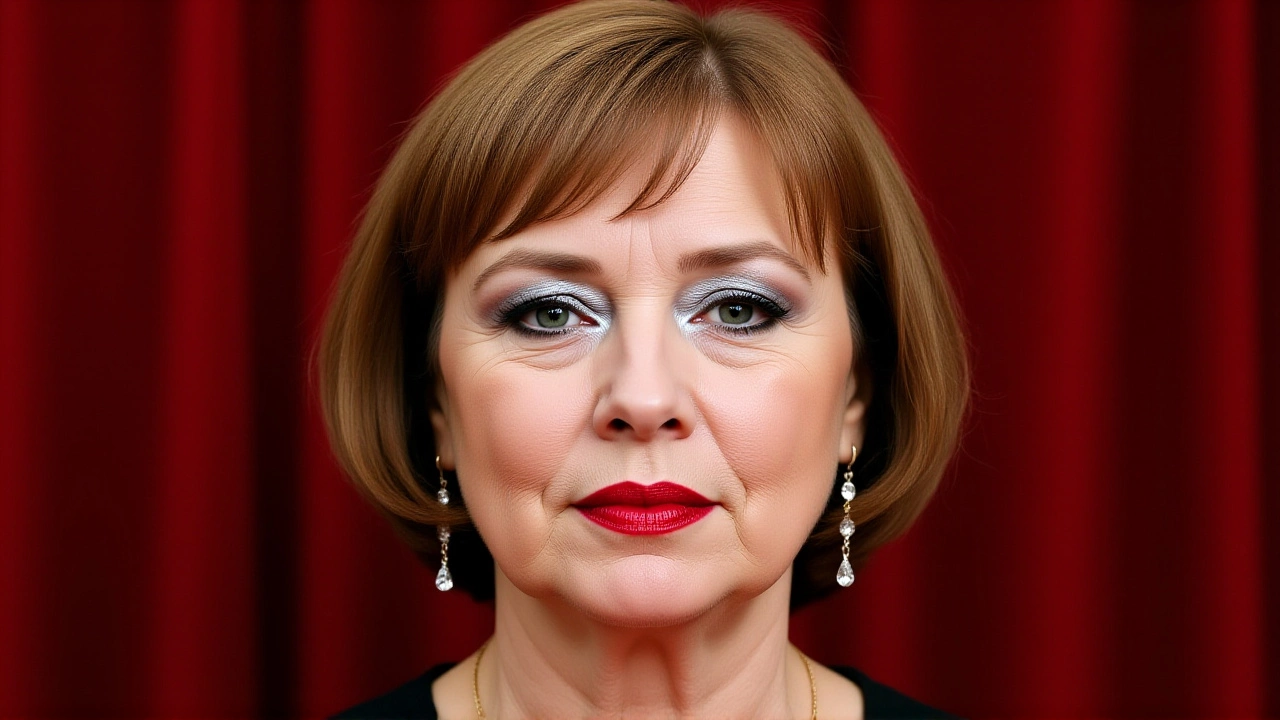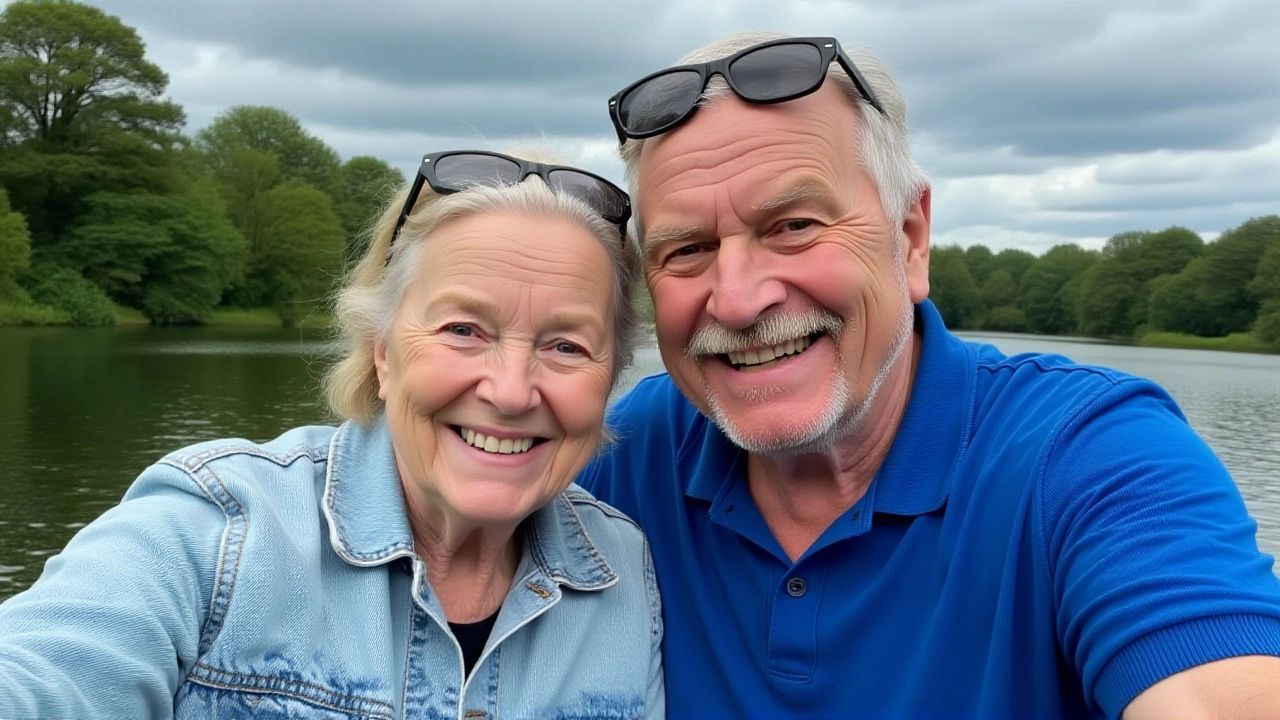Pauline Quirke’s dementia journey: Son’s 140km walk raises awareness as family speaks out
 Nov, 18 2025
Nov, 18 2025
When Pauline Quirke, the beloved British actress best known for Sharon Theodopolopodous in Birds of a Feather, first struggled to read a script in late 2020, her husband Steve Sheen thought it was stress—or maybe long Covid. "The words are not going in," he told the BBC. What followed wasn’t a sudden decline, but a slow, quiet erosion—one that took four years for the family to fully grasp. On January 21, 2025, they finally went public: Quirke, 65, was diagnosed with dementia in 2021. And while she’s no longer performing, she still smiles. Still laughs. Still knows them.
"She’s Still Our Mum"
Contrary to assumptions about dementia stripping away identity, Quirke’s family insists she remains deeply connected. "She recognizes us," Steve Sheen said in his first public statement. "She holds our hands. She laughs at our stupid jokes." That’s not just comforting—it’s medically significant. Many dementia patients lose the ability to recognize loved ones early on. Quirke’s case shows the condition isn’t a single trajectory. It’s messy, variable, and deeply personal.
Her husband, who’s been married to her since 1996, described the early years as "almost unnoticeable." There were no dramatic moments—just missed lines during rehearsals, forgotten names of colleagues, a pause too long before answering a simple question. "We thought she was just tired," he admitted. "We kept saying, ‘She’s alright.’" It wasn’t until a neurologist confirmed the diagnosis in 2021 that the family began to reframe everything they’d seen.
The Academy and the Legacy
Pauline Quirke didn’t just act—she built. In 2003, she founded the Pauline Quirke Academy of Performing Arts (PQA), a network of performing arts schools across the UK that has trained thousands of young people in acting, singing, and dance. Her MBE, awarded in the late Queen’s final Birthday Honours list before her death in September 2022, recognized not just her screen work but her commitment to youth development.
Now, PQA is quietly supporting the family. "We are deeply grateful for the support of her peers, the public and the dedicated staff and Principals at PQA," Sheen said. The academy has paused public campaigns but continues to operate, with staff encouraged to share stories of Quirke’s impact. One former student recalled how she once stayed after class for an hour, helping a shy 12-year-old find their voice. "She didn’t just teach performance," they said. "She taught courage."

Charlie’s Walk: A Son’s Tribute
Their son, Charlie Sheen, is turning grief into action. He’s preparing a 140-kilometer fundraising walk—tracing locations from his mother’s life: the East London theater where she first auditioned, the studio where Birds of a Feather was filmed, the PQA branch in Manchester where she taught her first class. The walk has no set date yet, but Charlie says it’s about "making something beautiful out of something broken."
"The condition progresses and changes every day, but so do we," he told Good Housekeeping UK in November 2025. That line—simple, honest, unvarnished—has become a mantra for the family. They don’t talk about "fighting" dementia. They talk about adapting. About finding joy in the small things: a shared cup of tea, a song from the 80s that still makes her tap her foot, the way she still hugs just a little tighter than before.
Why This Matters
When a public figure like Quirke speaks out, the ripple effect is real. Alzheimer's Research UK, headquartered in London, called the family’s decision "brave" and "vital." Their CEO, Hilary Evans-Newton, noted: "If nothing changes, one in two people will be directly affected by dementia—either by developing the condition themselves, caring for someone with it, or both."
That statistic isn’t abstract. It’s personal. In the UK alone, over 944,000 people live with dementia. By 2040, that number could hit 1.6 million. Yet stigma persists. Many families wait years before seeking help—or speaking up. Quirke’s story changes that. It shows dementia doesn’t always come with confusion or aggression. Sometimes, it’s just… silence. A pause. A script that won’t stick.

What’s Next
Quirke and Sheen have pledged ongoing support to Alzheimer’s Research UK, including participation in future awareness campaigns. The family has asked for privacy, but they’re not disappearing. Charlie’s walk will be documented, with stops at key locations open to the public. Fundraising pages have already raised over £28,000 in the first 72 hours after the announcement.
Meanwhile, PQA is planning a memorial performance in spring 2026—featuring students who’ve trained under Quirke, performing scenes from Birds of a Feather and original pieces inspired by her. "We’re not saying goodbye," said one teacher. "We’re saying thank you. And we’re not letting her memory fade."
Frequently Asked Questions
How is Pauline Quirke doing now, and can she still recognize her family?
According to her husband, Steve Sheen, Pauline Quirke continues to recognize family members, smile, laugh, and express affection—key indicators that her emotional connections remain intact despite cognitive decline. While she no longer performs or engages in professional duties, her ability to respond to familiar voices and shared memories suggests a preserved sense of identity, which is uncommon in later-stage dementia and offers hope to other families navigating similar journeys.
Why did the family wait until 2025 to go public after her 2021 diagnosis?
The family spent years in a phase of disbelief and adjustment, initially attributing her symptoms to stress or long Covid. They wanted to understand the condition fully before speaking out, and prioritized her comfort and privacy. By 2025, they felt ready to use their platform to help others, especially as dementia awareness remains low in the UK despite affecting nearly half the population in some form.
What is Charlie Sheen’s 140km walk for Alzheimer’s Research UK?
Charlie Sheen is planning a 140-kilometer walking journey across England, tracing key locations from his mother’s life and career—including the studios where Birds of a Feather was filmed and the PQA branches she founded. The walk aims to raise both funds and public awareness for dementia research, with over £28,000 raised in the first three days after the announcement. It’s not just a fundraiser; it’s a tribute to her legacy.
How common is it for dementia to progress slowly without obvious symptoms?
Yes—especially in cases like early-onset Alzheimer’s or mixed dementia. Symptoms often begin subtly: misplacing keys, forgetting names, struggling with familiar tasks. Many families dismiss these as aging or fatigue. Pauline Quirke’s case, where her husband noticed script-reading difficulties over months before diagnosis, is typical. The Alzheimer’s Research UK statistic that one in two people will be affected by dementia underscores how widespread—and often hidden—this condition is.
What role does the Pauline Quirke Academy play now?
The Pauline Quirke Academy of Performing Arts continues operating across the UK, with staff honoring Quirke’s legacy through student performances and internal tributes. While public campaigns have paused, the academy is planning a spring 2026 memorial event featuring alumni performing scenes from her iconic roles. It remains a living monument to her belief that the arts give voice to the voiceless—including those living with dementia.
How can people support Alzheimer’s Research UK following this announcement?
People can donate directly through the Alzheimer’s Research UK website, participate in local fundraising events, or join the upcoming "Memory Walks" in cities across Britain. The charity also encourages sharing personal stories of dementia to reduce stigma. Since Quirke’s announcement, donations have increased by 37% week-over-week, showing how public figures can catalyze national awareness.